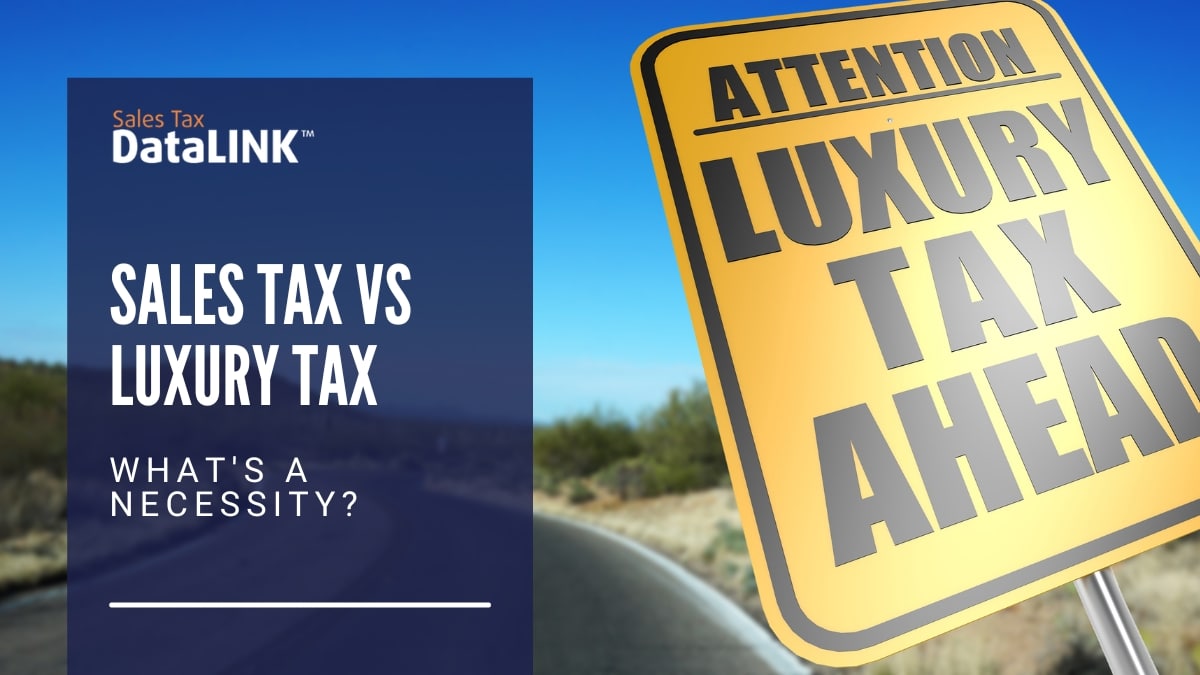Sales tax and luxury tax intertwine in the realm of taxation, shaping the landscape of consumer spending and revenue generation. Luxury taxes, designed for non-essential and high-end goods, aim to influence consumer behavior while bolstering government coffers. However, the distinction between necessities and luxuries becomes a subjective endeavor, resulting in intricate sales tax regulations. From varying tax rates on food items to exemptions based on specific conditions, businesses are faced with the daunting task of navigating the complexities of sales tax compliance, especially in the wake of the Wayfair ruling that expanded sales tax obligations across all 50 states. In this blog, we delve into the world of sales tax and luxury tax, exploring the nuances, challenges, and impact they have on businesses and consumers alike.
What is a Luxury Tax?
Luxury taxes are special sales taxes charged only on luxury goods, non-essential items that usually are expensive. In New York, for example, there’s a luxury tax on the purchase of houses costing over $1,000,000. From 1991 to 1993 there was a “yacht tax” which added luxury tax to the price of yachts as well as furs and other luxury goods. Sometimes taxes on cigarettes or soda — so-called “sin taxes” — are considered a luxury tax.
Sometimes luxury taxes are intended to change consumer behavior. That’s usually the case with sin taxes. But sometimes, as with the yacht tax, consumers change their behavior in unexpected ways and the tax fails to bring in intended revenue or even causes job losses in the industries being taxed. The rich, it turns out, can be influenced by price just like the rest of us.
Most luxury taxes are paid only by the wealthy, so most consumers don’t worry about them. But ordinary sales taxes have some things in common with luxury taxes.
Regular sales tax
Sales tax tends to be regressive, and in response, most states have different tax rates and rules for different kinds of products. The Tax Foundation says that “An ideal sales tax should apply to all final consumer purchases, without regard to whether items are classified as ‘necessities’ or ‘luxuries.’ Sales taxes ‘should apply to all consumption expenditures… at a uniform rate.’”
All but three states in the U.S. exempt food or have a lower tax rate on food than other less essential goods. Different kinds of foods also have different tax rates and rules, leading to the famous law that makes bagels untaxable unless they’re sliced, at which point they can be taxed.
Some other examples of this kind of necessity vs. luxury distinction:
- Candy is taxable in Washington State unless it contains flour, in which case it isn’t defined as candy. So a Twix bar is not candy but a Reese’s Peanut Butter Cup is.
- In Colorado, lettuce is not taxable, but a washed salad is.
- Maine exempts “grocery staples” from sales tax, but that doesn’t include marshmallow fluff, potato chips, or salted nuts.
The same kinds of distinction show up for clothing, where a fur coat may be taxable and a cloth coat exempt, or costumes are taxable and school uniforms are not.
Some states charge sales tax on prescription and over-the-counter medicines for human beings, but exempt medications for animals, apparently on the theory that farmers and ranchers have to treat the health of their animals but could be stoical and do without for themselves.
.This aspect of sales tax is also behind the current controversy on whether feminine hygiene products ought to be taxed or not.
What’s a necessity?
The problem is, there is no agreement on what is a necessity and what is not. Salted nuts may be a pantry staple for some and a luxurious snack for others. A peanut butter cup is not obviously more necessary for life than a candy bar that incorporates a cookie. As a retailer or a manufacturer, you can’t be expected to guess what a particular state’s legislature was thinking when they decided what to exempt from sales tax.
After Wayfair, companies — including manufacturers as well as retailers — may have to calculate and collect sales tax in all 50 states. Keeping track of sales tax rates and regulations has become overwhelming for business owners.
SalesTaxDataLINK sales tax calculation software gives you accuracy at an affordable price. We can also take on the whole sales tax compliance process for you. Call 479-715-4275 to learn more..




